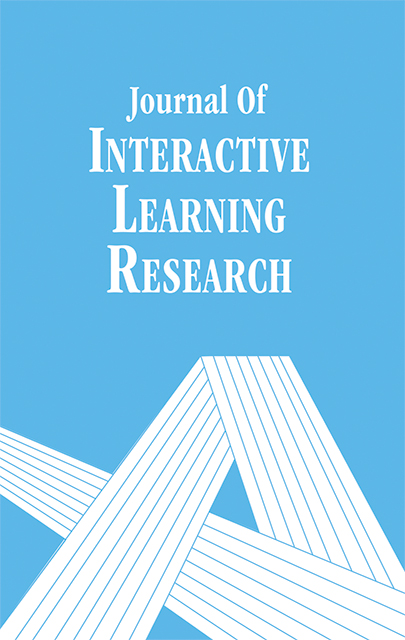
The ideal science student: Exploring the relationship of students’ perceptions to their problem solving activity in a robotics context
ARTICLE
Florence Sullivan, University of Massachusetts, Amherst, United States ; Xiadong Lin, Teachers College, Columbia University, United States
Journal of Interactive Learning Research Volume 23, Number 3, ISSN 1093-023X Publisher: Association for the Advancement of Computing in Education (AACE), Waynesville, NC
Abstract
The purpose of this study is to examine the relationship of middle school students’ perceptions of the ideal science student to their problem solving activity and conceptual understanding in the applied science area of robotics. Twenty-six 11 and 12 year-olds (22 boys) attending a summer camp for academically advanced students participated in the study. This correlational study utilizes survey and observational data. Students completed the ideal science student survey and individually engaged in a problem solving activity that was videotaped. Students were instructed to think-aloud during the problem solving session. The final programming solution students created was scored using a conceptual rubric. Two dominant perceptions of the ideal science student were identified, a traits-based view and a process-oriented view. Students with a traits-based view tended to use domain general strategies to solve the robotics problem. Whereas, students with a process-oriented view tended to use domain specific strategies, Chi-Square (1, n=24) = 4.608, p = .032. Students with the process-oriented view evidenced stronger conceptual understanding in their final program solutions as revealed by an ANOVA, F (1, 22) = 5.367, p = .03. Qualitative analysis of the data indicates that students with the process-oriented view modeled, verified and expanded their understanding of the use of specific tools in the environment. Implications of these findings for pre-service science teachers and the design of learning environments are discussed.
Citation
Sullivan, F. & Lin, X. (2012). The ideal science student: Exploring the relationship of students’ perceptions to their problem solving activity in a robotics context. Journal of Interactive Learning Research, 23(3), 273-308. Waynesville, NC: Association for the Advancement of Computing in Education (AACE). Retrieved August 31, 2024 from https://www.learntechlib.org/primary/p/37115/.
© 2012 Association for the Advancement of Computing in Education (AACE)
